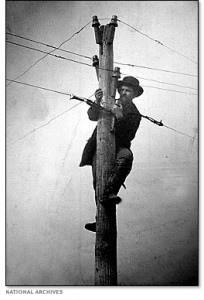How to Be Brief
Brevity is a communication virtue because it increases the chance of your message being heard and understood. The best way to be brief is to state your point up front and then add detail as necessary.
In this increasingly distracted world, people just won’t take the time to listen for very long to what you have to say, so it’s important to get your message across succinctly and efficiently. Make sure that if they tune out, they have at least heard the main point.
Think about a newspaper article. The headline tells you the main point, so that if you’re too busy to read the article, at least you have a general idea of what happened. Next, you read the first paragraph, which tells you the “who, what, where, when, how and why”. Journalists call this the inverted pyramid technique, in which the critical information is at the top of the pyramid and the least significant details at the bottom.[1]
Besides ensuring that your main point will be heard, brevity will make it easier to understand. The mental discipline that you go through to figure out your main point can only help to clarify your message. This is why busy leaders like Churchill and Reagan insisted that any issues presented to them had to be contained on one sheet of paper. Think about it: Should we invade France in 1943 or 1944? Negotiate with this fellow Gorbachev? One sheet of paper.
[1] In my classes, I’ve often told the story that the inverted pyramid was invented by America journalists during the Civil War who feared the lines could be cut at any time. Sadly, in researching this article I have just discovered it’s a myth. I say sadly, because it’s a good story and it allows me to compare your listener’s attention to telegraph wires that can be cut at any time.





[…] to do too much. When you consider that Winston Churchill used to require every memo sent to him not to exceed one page no matter how big the topic, you can see how it’s possible, especially since you’re not […]